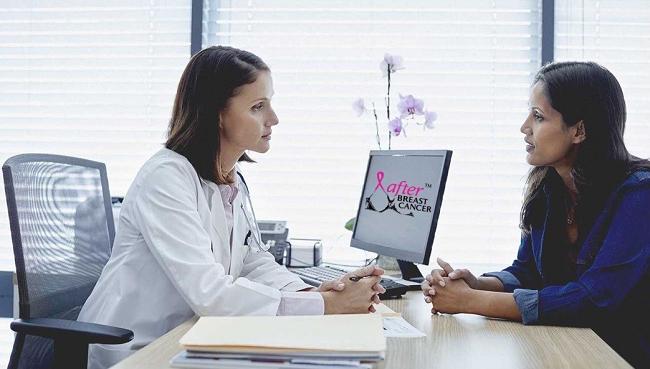
I want to write about something that I truly believe is very important for us breast cancer patients: our voices. As much as our health care teams work to rid us of cancer and heal us, they are only part of this long process. We are as much a party to our own care as they are. As I told an assembled group about the patient experience, “unless you hear me, I do not hear you.”
While that statement in and of itself seems to say I am (or us patients are) obstinate, we often know the best way forward with our own care. And we need to make our voices, our opinions, our questions known and heard. We are living the life of cancer, we are grappling mentally and physically with lives that probably do/did not have room for cancer. How we approach our own care, I believe, will help us heal. And I do think we need to approach it proactively from diagnosis onward.
For a long time, people said the doctor knows best
In many ways, our oncologists and surgeons do. But they are not living in our bodies. They know the best course of treatment to make us cancer-free. However, many clinicians do not involve us, the individual, to help make us whole (although that is changing).
Thus, we need to advocate for ourselves, to ask questions—seemingly dumb or very intelligent—to say slow down, to demand the clinician to better explain our medical condition(s) in language understandable to the layperson, to hear our fears and hopes, and listen to our concerns regarding life outside of the hospital walls. It is asking for suggestions and information for services that might not be medical per se but can also guide us in our healing. It is asking to be educated about realistic options and expectations for mental healing as that often takes longer than physical healing.
Don't be afraid to ask, to engage your team
These discussions—of treatments, medications, surgeries, therapies, dietetics just to name a few—have a “direct, measurable impact on individual patient outcomes,” so says Rana Awdish, M.D. Engage, challenge and argue if you feel you must: have your voice heard if you are physically and mentally capable. Doctors are trained to see the diagnosis, not us. As patients, we can return things to the personal, to the person, not the disease through our questions, discussions, in short, pro-active engagement.
I advocate on behalf of patients, so our voices are not drowned out by the humming of technological medicine, behind leading questions or “best practices.” I ask health care teams to hear our stories with a view to becoming practitioners that treats me and everyone else (w)holistically. Treat the whole person, not the tumor.
Thus, best practices are a starting point not an endpoint for our care. It becomes the basis from which a health care team builds a path forward that is individualized and not institutionalized. One the requires and respects our voices.